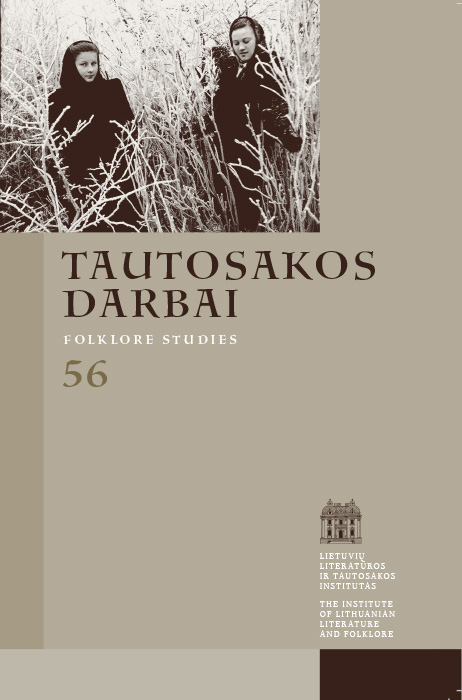European Spruce Bark Beetle and Conflicting Ecological Consciousness in the Białowieża Forest
Abstract
The article analyzes ideological basis for the ongoing ecological / political conflict in Białowieża Forest, Poland, and the way ideologies affect lives of the local inhabitants. The said conflict is at least partially caused by the recent spread of the European spruce bark beetle (Ips Typographus). This forest once used to be the royal hunting grounds belonging to the rulers of the Grand Duchy of Lithuania. Recently the conflict over it expanded on to the international level: Poland stood trial in the European Court of Justice for the continuous cuttings in the UNESCO and NATURA2000 protected forest areas. For the research purposes, a series of in-depth interviews were conducted in Białowieża with various parties participating in this conflict. These include representatives of the National Park of Białowieża, the Białowieża State Forestry offices, the local forestry technical school (Technikum Leśne), the Polish mammal research institute (Instytut Biologii Ssaków Polskiej Akademii Nauk), different NGOs, such as Fundacja Dzika Polska and Fundacja Edukacyjna Jacka Kuronia, and ordinary residents of the town, whose everyday lives got tangled in these debates. The paper analyses arguments presented in these interviews in order to demonstrate the differences in ideology and worldview separating the opponents. In this article, the organizations are roughly grouped into two ideological camps, based on their arguments about nature. Apparently, even though both camps are interested in protecting nature, they disagree on the concept of nature that they are protecting. The lack of political agreement rests on different ideas about the meaning of the word itself. Both versions of the concept are analyzed by using historical and philosophical arguments. One side maintains that nature is nearly static (fast changes in it are regarded as a disease), holistic and related to the figure of the forester as creator and supervisor of the natural forest. Another side perceives nature as dynamic, non-holistic and detached from humans. The defenders of the second type of the concept believe that nature is in danger because of the foresting, since humans are regarded as ontologically separate from nature. The article also analyzes many other different ideological factors that also fuel the conflict (including aesthetical and economic arguments) and their impact on the lives of the local population of Białowieża and Hajnówka. Both towns struggle in reshaping themselves according to the currently shifting environmental paradigm and reinventing a new identity. Moving away from the forest management (the old paradigm) seems increasingly inevitable, yet the emerging new paradigm apparently leaves no place for humans living in the forest. Therefore, neither paradigm is currently capable of winning the debate, establishing some kind of dialectic relationship instead.
Downloads
Most read articles by the same author(s)
- Mantas Antanas Davidavičius, Metamorphoses of the Lithuanian Environmental Thought: From the Onset through Enlightenment to Romanticism , Tautosakos darbai: Vol. 65 (2023): Tautosakos darbai
- Mantas Antanas Davidavičius, Letter as a Way of Survival: The Case of Etty Hillesum , Tautosakos darbai: Vol. 68 (2024): Tautosakos darbai
- Mantas Antanas Davidavičius, How to See the Snake’s Feet? , Tautosakos darbai: Vol. 63 (2022)
